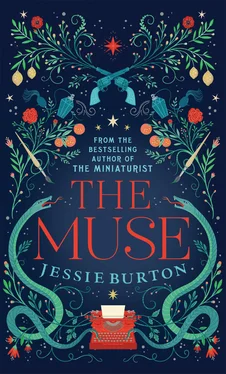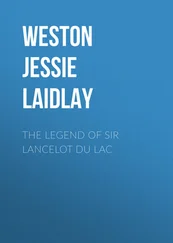‘Good,’ Olive said, standing up and pulling Teresa to her feet. From inside the house, they heard Sarah’s laughter. ‘Come on, follow me.’
As he sat with Sarah in the front east room, Isaac’s gaze flicked up to the ceiling. The room above their heads was the place, eleven years ago, where he’d lost his virginity. His father had just taken the job of estate manager for the duchess and the finca had been unoccupied. Isaac had stolen the keys from his father’s office and crept in with a couple of his schoolfriends. More young people from the surrounding villages turned up around midnight, and he’d got drunk properly for the first time in his life, two bottles of his father’s Tempranillo to himself.
In the morning, he’d woken sprawled on one of the covered beds with a woman — Laetitia was her name — fast asleep beside him. When she woke, they started kissing, and in the drugged, dry-headed haze of his first hangover, Laetitia and he had sex. Laetitia, Isaac recalled now, had been twenty-seven years old. He had been fifteen. A vase had been smashed downstairs, and when his father appeared at their bedside with the pieces in his hands, he chased Laetitia out of the room and came back to beat his son. Not for the sex — just the vase. I thought you were a poof , his father had said. Thank God .
Isaac wondered where Laetitia was now. She’d be thirty-eight, about the age of Sarah, who was pouring out their glasses of lemonade. He looked out of the window, down the slope towards the village path. He had never been able to hold Arazuelo in proportion. It never stayed the same, and yet it always seemed the same. It was a self-reflecting place, insular and welcoming by turns. He was continually trying to leave it, although he could never exactly say why. Arazuelo was part of his body. Madrid was the moon, Bilbao was outer space, Paris a place of biblical fantasy — but Arazuelo could overtake a man like no place else.
‘Mr Robles?’ Sarah Schloss was talking to him, and he smiled. He could hear his sister and Olive making their way up the creaking stairs to the first floor, and then up again to the attic. If Sarah heard them too, she made no comment. She was smoking again, always smoking, and her legs were tucked up underneath her as she sat on the green sofa. ‘So, do you think it’s a good idea?’ she said.
Well, did he? He knew there was something wrong about it, that he should say no. But he couldn’t put his finger on it. ‘You must be terribly busy,’ she went on, in the face of his silence. ‘But I haven’t had one for years, and it will be such a surprise for my husband.’
‘Does he like surprises, señora?’
‘Well,’ she said. ‘He’s always surprising me.’
Isaac thought about her offer. That he was a good painter, he knew. He might even be a great painter one day. As he and Tere had grown up in the shadows, as Alfonso’s illegitimate children, his father had often bunged them money, on the understanding that Isaac would grow up and leave all this left-wing, artist stuff behind. Alfonso, on hearing that his son was now ‘consorting’ with union leaders, Anarchists and divorced women, had confronted him. Isaac had no intention of leaving his work at the San Telmo school, so Alfonso had stopped his cash flow. He hadn’t told Teresa.
He had very little income from the school, as cuts to government initiatives had affected its ability to run classes and pay the staff. In a few months, Isaac knew he was going to be very poor. But he could never ally with his father, whom he considered the biggest hypocrite this side of Seville.
‘I pay very well,’ Sarah said. ‘Whatever you need.’
Although he bristled at the ease with which she thought she could buy him, he considered what a pleasure it would be to paint a face like Sarah Schloss’s. ‘Thank you, señora. I accept. But allow me to make this a gift.’
Her eyes closed in a brief pause of pleasure, as if she had always known he would assent. As much as Isaac disliked witnessing this, he admired her self-belief. He felt that he did not want to give her any assurance about her beauty. She clearly knew she had it in abundance.
Sarah smiled. ‘Oh, that won’t do. This has to be a transaction. How many sittings will you need me for?’
‘I think six to eight, señora.’
‘And should we do it here, or at your house?’
‘Whatever is easiest for you.’
Sarah leaned over the tray as she lifted a glass of lemonade and handed it to him. ‘This is your sister’s recipe,’ she said. ‘It’s better than any I’ve had elsewhere. What do you think her secret is?’
‘I leave my sister’s secrets to her, señora.’
Sarah smiled. ‘Sensible. I think it should always be like that — everyone’s happier that way. I’ll come to you. Harold is in and out all the time, and I don’t want him getting suspicious.’
‘When is his birthday, señora?’
‘His birthday?’
‘This is not a present for his birthday?’
‘Oh, no,’ she said. ‘It’s just a surprise.’ She lifted her glass. ‘Cheers. Here’s to my painting.’
Outside her bedroom, Olive stopped her hand on the old wrought-iron handle and faced Teresa. ‘Remember,’ she said. ‘Keep this to yourself.’
Teresa nodded. She could hear her brother and Sarah talking below. Olive pushed down the handle and let her in.
They were in an unexpected atrium of thick gold light, a huge space that ran along at least half the span of the house, with exposed beams, splintered with age and cracking plaster. Teresa blinked, adjusting her sight, the dust in the shafts of honeyed daylight swirling in Olive’s wake. Isaac had been in this house before, running round it like a mad boy, but Teresa had been too young, and so she hadn’t known such a room existed.
She stood rigid at the door, looking furtively around for whatever it was that Olive had been hiding up here. She could not smell an animal, nor hear any muffled cries; she could see only travelling trunks, a messy bed, clothes on a chair, books piled up in towers. It was the type of room she dreamed of for herself.
‘Shut the door, nincompoop,’ Olive said.
‘ Nincompoop ?’
Olive laughed. ‘I didn’t mean it. I just — I don’t want them to hear us.’
Teresa was uneasy. Olive was supposed to be the fish out of water, walking round in her socks. But now, standing by the window on the other side of the room, she looked so different. She had walked into the sunlight straight-backed, certain of herself, her arm resting gracefully on the sill, lost in thoughts that Teresa didn’t have the ability to reach.
‘Teresa,’ Olive said. ‘Close the door. Come over here. I want to show you something.’
Teresa obeyed, as Olive knelt down under the bed and pulled out a very large, flat piece of wood. When she lifted it up and turned it round, Teresa’s breath caught in her throat. ‘ Madre mía ,’ she said, and laughed.
‘Why are you laughing?’
‘You did this?’
Olive hesitated. ‘I did. It’s called The Orchard . What — do you think?’
It was one of the most extraordinary things Teresa had ever seen. Some of Isaac’s paintings were pretty decent, but this one, this one, stood before her like a. . person. It was not a case of thinking, it was a matter of feeling. The painting in its power overwhelmed her.
Her eyes darted all over it. She felt saturated. Who painted like this, a nineteen-year-old in her school pyjamas? Who knew such colours, who could take the land she had only just arrived in, and turn it into something better, and higher, brighter than the sun that flooded the room? For surely, this was the finca and its orchard, reimagined in a riot of colour and dancing shapes, identifiable to Teresa but so essentially changed.
Читать дальше












